Can't decide? 3 Ways to simplify your decision making process
Working with leaders and with couples I often interact with people faced with making big decisions where the cost of being “wrong” can be substantial. Focusing on making the “right” decision can easily lead to paralysis. You see, the problem is the options you’re choosing among are difficult to rank in the first place. Besides, overemphasize the moment of choice can make you lose sight of everything else that follows.
Scott McNealy — a co-founder of Sun Microsystems and its CEO for 22 years —said during a lecture about decision making at Stanford:
“It’s important to make good decisions. But I spend much less time and energy worrying about “making the right decision” and much more time and energy ensuring that any decision I make turns out right.”
Today I want to share with you 3 ways to simplify your decision making process and ensure your decision "turns out right."
1. Pay attention to your feelings and emotions
This view is consistent with the work of Stanford professor Baba Shiv, an expert in the neuroscience of decision-making. Shiv notes that in the case of complex decisions, rational analysis will get us closer to a decision but won’t result in a definitive choice because our options involve trading one set of appealing outcomes for another, and the complexity of each scenario makes it impossible to determine in advance which outcome will be the best.
Two key findings have emerged from Shiv’s research: First, successful decisions are those in which the decision-maker remains committed to their choice. And second, emotions play a critical role in determining a successful outcome to a trade-off decision. As Shiv told Stanford Business magazine, emotions are “mental shortcuts that help us resolve trade-off conflicts and…happily commit to a decision.” Going further, Shiv noted, “When you feel a trade-off conflict, it just behooves you to focus on your gut.”
I'm NOT saying that you should simply allow your emotions to choose for you. We’ve all made “emotional” decisions that we later came to regret. But current neuroscience research makes clear that emotions are an important input into decision-making by ruling out the options most likely to lead to a negative outcome and focusing our attention on the options likely to lead to a positive outcome. Therefore, listen to your feelings!
A couple of questions that could help you clarify your feelings are:
How does each option feel?
Which one bring me a sense of calm and comfort and which one brings angst and discomfort?
2. Assess how motivated you are to work toward the success of any given option
Research by Florida State professor Roy Baumeister and others suggests that good decision-making is tied to our ability to anticipate future emotional states: “It is not what a person feels right now, but what he or she anticipates feeling as the result of a particular behavior that can be a powerful and effective guide to choosing well.”
Therefore, Use your imagination! Vividly envision yourselves in a future scenario, get in touch with the emotions this generates and assess how those feelings could influence your level of commitment to that particular choice. Then go with the choice you feel you can commit strongly to make it succeed.
3. Don't stop with choosing. Plan and throw your energies into implementing your choice
No matter what option you choose, your efforts to support its success will be more important than the initial guesswork that led to your choice. Don't spend all your energy in anxious analysis and double guessing and checking every little thing.
Yes, explore values, priorities, the objective reality of the choices you face, and how your decision will influence the future. Then check your feelings, and assess how committed you could be to each options. But if you spend all your energy in the choosing, you will have none left for the acting. And action, even imperfect action, is what will make your decision "right."
Remember. . .
If you are confused by all the possible choices, are feeling stuck or even paralyzed by a decision, you need more than rational analysis. Get in touch with your emotions, use your imagination, and assess how those feelings influence your level of commitment to that particular choice.
You can’t always make "the right decision," but you can make every decision right!
Are you facing a big decision and having problems with making the "right" choice? Schedule a call with me today and I will give you a half hour of my time to help you explore what has you stuck.

